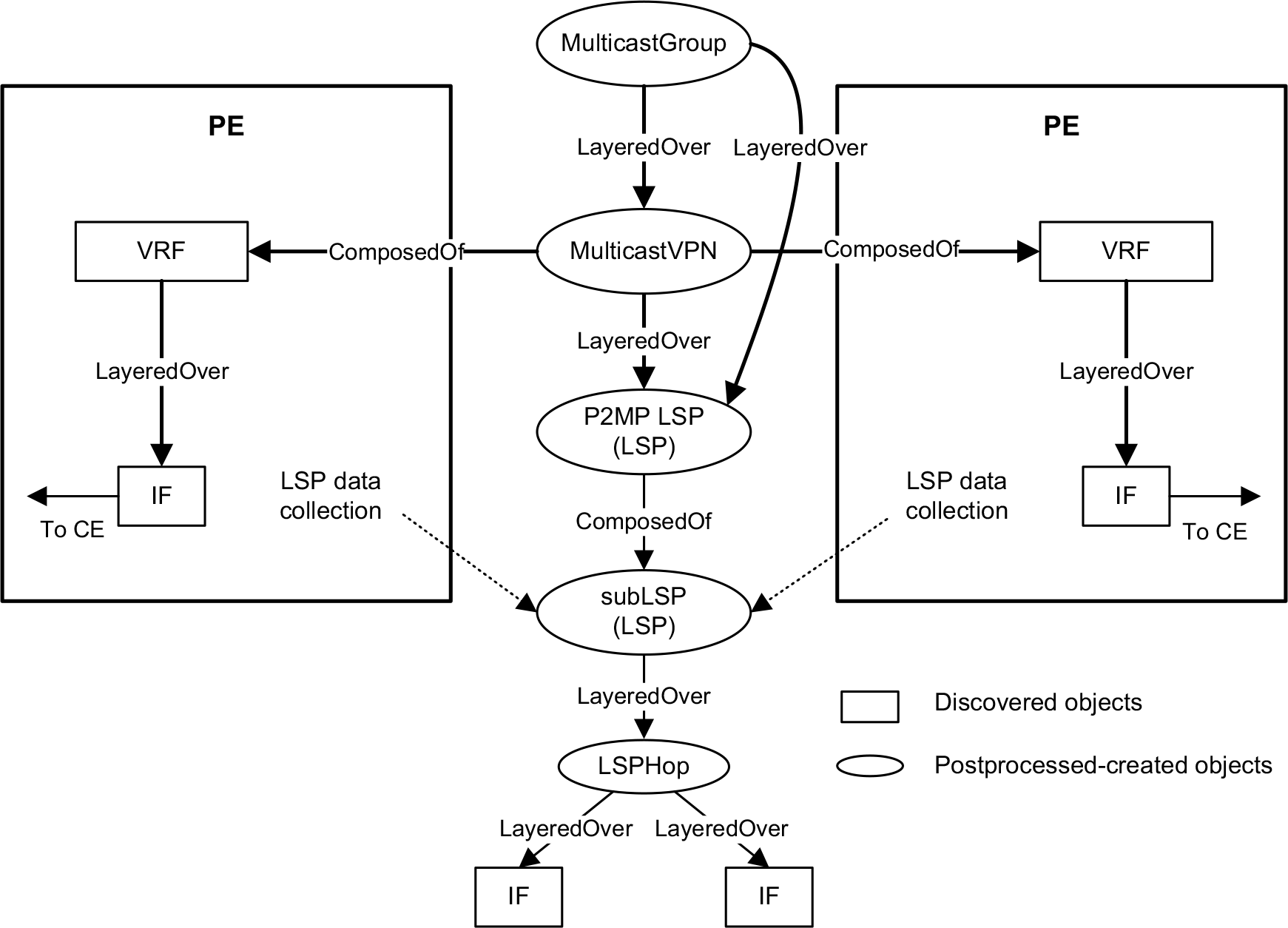MPLS Managerdiscovers both multicast VPNs and multicast groups and represents them as instances of the MulticastVPN and MulticastGroup classes. A MulticastGroup object represents a valid multicast group IP address in the range of 224.0.0.0 to 239.255.255.255.
MulticastVPN and MulticastGroup relationshipsshows the relationships between MulticastVPN and MulticastGroup objects and the related network elements.

The relationships in terms of impact analysis are defined as follows:
-
A MulticastVPN has a ComposedOf one-to-many relationship to the VRFs that belong to the VPN. When one of the VRFs has a problem or is impacted by an underlying problem, the MulticastVPN is impacted too.
-
A MulticastGroup has a LayeredOver many-to-one relationship to a MulticastVPN. When the MulticastVPN is impacted by a failed or impacted VRF, all MulticastGroups that are LayeredOver the MulticastVPN are impacted too.
-
A MulticastVPN has a LayeredOver one-to-many relationship to one or more P2MP LSPs. When one of the P2MP LSPs is impacted by an underlying problem, the MulticastVPN is impacted too.
-
A MulticastGroup has a LayeredOver many-to-one relationship to an inclusiveP2MP LSP. When the inclusive P2MP LSP is impacted by an underlying problem, all MulticastGroups that are LayeredOver the P2MP LSP are impacted too.
-
A MulticastGroup has a LayeredOver one-to-one relationship to a selectiveP2MP LSP. When the selective P2MP LSP is impacted by an underlying problem, the MulticastGroup is impacted too.
-
A P2MP LSP has a ComposedOf one-to-many relationship to subLSPs. When one of the subLSPs is impacted by an underlying problem, the P2MP LSP is impacted too.
-
A subLSP object has most of the same relationships as a TE LSP.